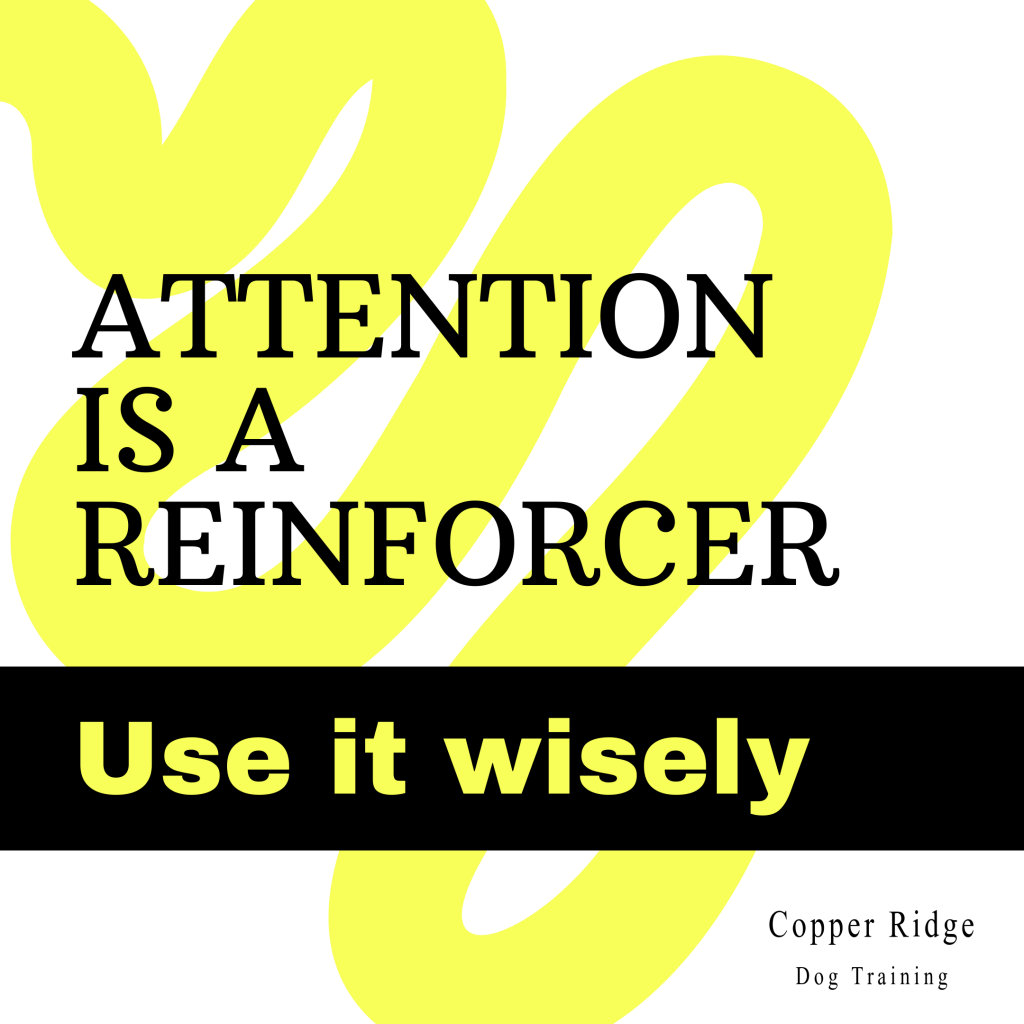Let’s talk about how our attention affects our dogs’ behavior.
Your dog loves getting attention from you. All of the belly rubs, tug of war challenges, and late night snuggles are incredibly rewarding for both of you. You get the warm fuzzies when your dog is excited and happy to see you, and she feeds off of that happy energy. It lets her know that you’re happy with her, that she’s doing a good thing, and that if she does it in the future, she’ll likely get the same happy attention from you.
And there is the catch that I want you to really think about. Your dog is incredibly smart and knows that there are certain behaviors that will get your attention again and again. So when you give her that attention is critical. Lots of play, kissy noises, high-pitched greetings: they are all incredibly fun and tell your dog “let’s celebrate!”. The more fun you make it, the more reinforcing it is for her (meaning the more likely she is to try that behavior again so that she can have that fun again).
But do we always want a high-energy dog? What about when you’re about to sit down to dinner? I’m guessing you don’t want your dog bouncing around and getting underfoot, or trying to snuggle everyone at the table. And what about when you come home with an armful of groceries? If she’s used to you ecstatically greeting her every time you come in the door, you better be ready for her to rush into your bubble, whether you’re ready or not.
If we want to have calm behaviors, we need to practice them. And this comes down to only giving your dog the attention she so desperately craves when she is calm. Don’t throw a party every time you walk in the door, or she will jump on every guest that you have over. Don’t pet her as she barks at the dog outside of your window, or she will think that she gets rewarded for barking (and she’ll start doing it a whole lot more). Don’t wrestle with her two minutes before bedtime and then expect her to robotic-ly curl up in her kennel at night.
Your dog loves getting attention from you, so use that to your advantage by only providing it when you want to encourage more of that behavior. Not sure what this looks like in action? We’re here to help!

